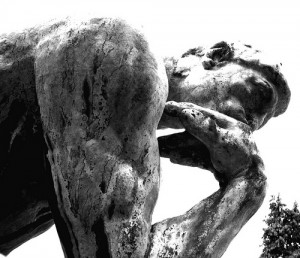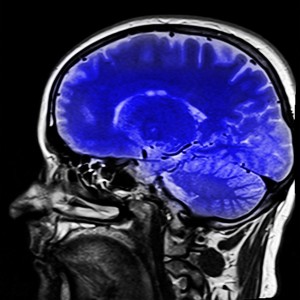 We’ve learned how to relate to each other in the grey areas. Today’s passage teaches us how to think in the grey areas.
We’ve learned how to relate to each other in the grey areas. Today’s passage teaches us how to think in the grey areas.
Grey areas are non-essentials over which Christians can disagree and remain brothers and sisters. Don’t think: Jesus, gospel, clear commands or clear prohibitions. These are essentials, black-and-white. Think: worship styles, church traditions, politics, parenting techniques, entertainment, diet, etc.
Before we begin, remember that this passage is narrow in content, but broad in application. It is about the Roman Christians who disagreed whether it was more honoring to the Lord to observe Jewish dietary rules and holy days or to live free of them. However, the principles in this passage apply to broader aspects of Christian living.
Without further adieu, here are three principles that will help us think about grey areas. This is a rich passage that contains much more than these three principles, but they will form our focus for this post. Since we’ve covered the ideas contained in verses 20-22a, we’ll stick with verses 22b-23.
Blessed is the one who has no reason to pass judgment on himself for what he approves. (v.22b)
The root for the word translated ‘blessed’ literally means ‘make large.’ To be Biblically blessed is to be enlarged with God’s benefits and advantages.
Where you see the word ‘blessed’ in the Bible, it’s connected to surprisingly unblessed sounding things. Take Jesus’ teaching in Matthew 5:3-11 for example. Jesus teaches that the blessed ones, the ones filled with God’s benefits and advantages are:
- the poor in spirit
- those who mourn
- the meek
- those who hunger and thirst for righteousness
- the merciful
- the pure in heart
- the peacemakers
- those who are persecuted for righteousness sake
And here in Romans 14 we find another example of true blessedness: the one who has no reason to pass judgment on himself for what he approves.
The world (magazines, movies, books, gurus, etc.) teaches that you will be enlarged with benefit and advantage if you earn a lot of money, get fit, look good, have friends, manage your time better or any number of other helpful things. However, God says you’ll be blessed if you enter grey areas in such a way as to emerge with a clean conscience.
Take entertainment for example. Do you have reason to pass judgment on yourself for what you approve with your television? I know people who share Netflix accounts to save money. Several of them have been embarrassed when their new Netflix partners saw their “Recently Watched” list. They had reason to pass judgment on themselves for what they approved with their remote.
Now, this is not old school legalism. I grew up Southern Baptist. I know all about old school legalism. “No dancin’, no huggin’, no cards, no rock-n-roll, no movies…” This is not about legalistic rules and regulations. This is about blessedness. This is about aiming for a clean conscience and enjoying the benefits and advantages that are yours as a Christian.
Are you currently feeling the opposite of blessed? Are you feeling shriveled and empty? Maybe you’re contradicting your conscience in some area of your life. Maybe you’ve been coerced by some influence other than God to make certain choices or behave in certain ways that have given you reason to pass judgment on yourself for what you approve. If so, confess this to the Lord, repent, receive his forgiveness and move forward in such a way as to keep a clean conscience.
Do you want to bless people? Then let them operate according to their consciences. Focus less on coercing behaviors and more on building up in Christ, so that their consciences become stronger and better, and their lives become freer.
Whoever has doubts is condemned if he proceeds. (v.23a)
Proceeding into an activity while suspecting that it might dishonor the Lord is condemnable. For the Romans, it was food. Some felt pressured to eat meat while they suspected that doing so dishonored the Lord. Even though there was nothing inherently sinful about eating the meat, for them to eat while doubting was sinful.
This means that it is not just the content of the plate that can make it sinful. It’s also the content of your heart as you approach the plate. The same holds true for the cup or the conversation or the movie or the purchase, etc. Take alcohol for example. The Bible does not say that drinking alcohol is a sin. But if you take a sip while suspecting that God doesn’t want you to, it is sin for you.
Now, this is not moral relativism, which means that there are no moral absolutes. Some things are just wrong, no matter what the content of your heart. Murder is wrong. Stealing is wrong. Remember, this passage refers to grey areas only. In the grey areas, it is equally important to consider your heart’s motives as it is to consider the activity itself.
Whatever does not proceed from faith is sin. (v.23b)
This statement is HUGE!
We have a false conception that there are three categories for activities: the good, the neutral and the bad. If we do things in the good category, they are good. If we do things in the neutral category, they are neutral. And if we do things in the bad category, they are bad.
 This verse takes down the walls between these categories. It means that anything can be sinful when it does not proceed from faith. Typing this sermon recap can be sinful. Reading it can be sinful. No list can contain sin’s opportunities. See why this is such a huge statement?
This verse takes down the walls between these categories. It means that anything can be sinful when it does not proceed from faith. Typing this sermon recap can be sinful. Reading it can be sinful. No list can contain sin’s opportunities. See why this is such a huge statement?
Clearly we need to understand what “proceed from faith” means. When the Bible says ‘faith’ is does not mean magical belief. This isn’t Santa-style belief in which if we conjure enough of it, something will come true. When the Bible says ‘faith’ it means entrusted-ness, the way you’ve entrusted yourself into your seat right now. If you put your full weight into it, you have Biblical faith in it.
This verse means that anything that does not proceed from entrusted-ness in Jesus Christ is sin. In Jesus, we receive a massive list of benefits and advantages that become our new identity (click here to read the list). Anything that does not proceed from this identity is sin.
Living in light of who we are in Christ is what would have enabled the Roman Christians to be free from their religious restriction and it’s what enables us to live boldly in the grey areas. This means that when you grab the remote or open the menu or enter the church or stoop down to talk to your kids, you are to do so in light of what Jesus has done for you.
This isn’t goodie-two-shoe-ism. This is a reminder of reality and identity. It’s the antidote to the Christian amnesia which causes so many of us to live as though God isn’t real and Jesus didn’t save us. It’s a call to shift from lists of do’s and don’ts to abundant life in Christ. To transfer our focus from nitpicking activities to living vibrantly in light of our new identity in Christ.
What is God’s will for you in the grey areas? To do what proceeds from faith in Jesus Christ. To look into the grey and say, “I am a Christian. Therefore…”
Conclusion
In the grey areas, the non-essential areas, the secondary areas, the areas in which we have no clear commands or prohibitions on which to rely; we can proceed in such a way that leaves our consciences clean, that enlarges us with God’s benefits and advantages. We can proceed in light of what Jesus Christ has done for us.
We are Christians. Therefore…
Discussion Starters
- How has Romans 14 affected your life in the last few weeks? Share with the group.
- What are some ways to be blessed (filled with benefit and advantage) according to the world? How does this contrast with what the Bible says about being blessed? (See Matthew 5:3-11 for help.)
- How does the principle in the second half of verse 22 impact the way you approach common grey areas, such as church practices, diet and entertainment?
- What are some practical ways we can keep from having a reason to pass judgment on ourselves for what we approve?
- How is all this different from legalism (creating extra rules to live by so we’ll feel self-righteous)?
- How is the first half of verse 23 different from moral relativism, which means that there are no moral absolutes (what’s wrong for one can be right for another)?
- What does the second half of verse 23 mean? What are the implications of this statement for us?






